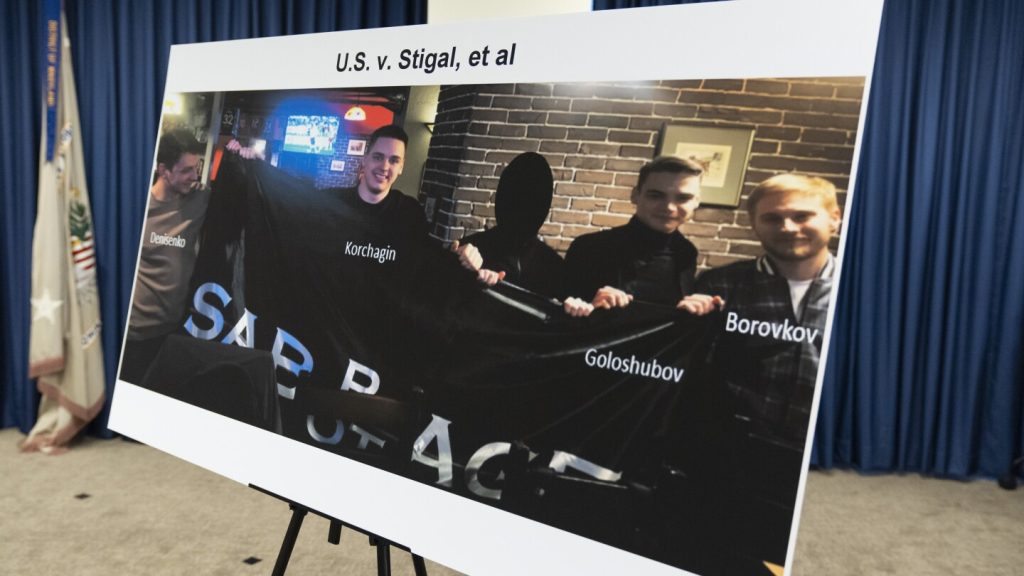The U.S. Justice Department has expanded its indictment of Russians involved in the WhisperGate malware attacks targeting computer systems in Ukraine and 26 NATO allies, including the United States. The superseding indictment names five Russian military intelligence officers who conspired to demoralize the Ukrainian people ahead of Russia’s invasion of Ukraine. The cyberattacks occurred in January 2022, penetrating U.S. companies and various sectors in Ukraine such as judiciary, emergency services, food safety, and education, unrelated to defense. Personal data of Ukrainian civilians were stolen and leaked online, affecting thousands of individuals.
According to William DelBagno, the special agent in charge of the FBI’s Baltimore field office, the WhisperGate attacks could be seen as Russia’s initial move in the war. The indictment includes military intelligence officers Vladislav Borovkov, Denis Denisenko, Yury Denisov, Dmitry Goloshubov, and Nikolai Korchagin, along with 22-year-old Russian civilian Amin Timovich Stigal. The accused are alleged to have conspired to gain unauthorized access to government computers in Ukraine and its allies. The U.S. government is offering a total of $60 million in rewards for information leading to the apprehension of these individuals or evidence of malicious cyberactivity.
Federal officials believe that all six accused individuals are located in Russia. Despite this, the indictment is crucial in preventing their travel and exposing their conspiracy. The U.S. investigation, known as Operation Toy Soldier, uncovered various instances of fraud committed by the accused, including illegal access to bank accounts and using a U.S. company to carry out their crimes unknowingly. The FBI and government partners are issuing a joint cybersecurity advisory to detail how the attacks were carried out and suggest measures to prevent similar incidents.
In addition to the WhisperGate malware attacks, the U.S. Justice Department has announced other Russia-related prosecutions, including charges against two employees of RT, a Russian state media company. These individuals were accused of covertly funneling millions of dollars to a Tennessee-based content creation firm that paid social media influencers to publish content aligning with Russia’s interests. The indictments are the result of years of collaboration with partners and law enforcement in Europe. The U.S. is committed to identifying and prosecuting Russian criminals involved in cybercrimes and protecting against future threats.
To further target Russia, the State Department imposed sanctions on two Russian companies and their ships involved in exporting liquefied natural gas from a previously sanctioned Russian energy project in the Arctic. The companies, Gotik Energy Shipping Co. and Plio Energy Cargo Shipping Co., along with their ships LNG New Energy and LNG Mulan, were designated for supporting Russia’s war effort by using profits from natural gas exports. The sanctions freeze any assets these companies may have in U.S. jurisdictions and prohibit Americans from conducting business with them. The actions taken by the U.S. government are part of efforts to counter Russia’s influence and support for its war in Ukraine.


